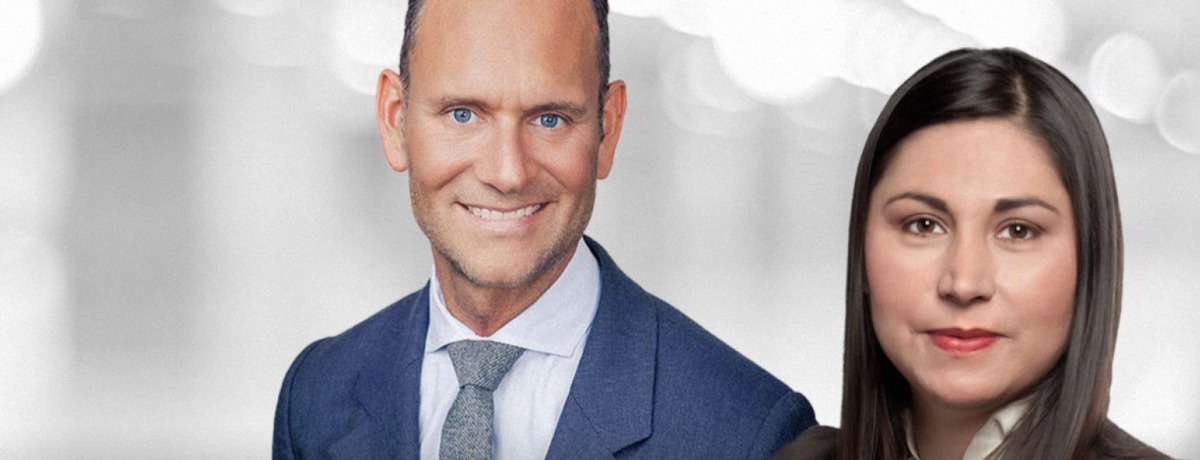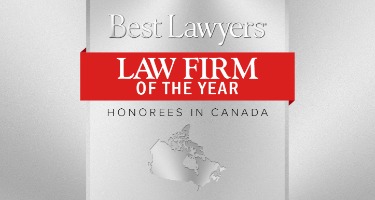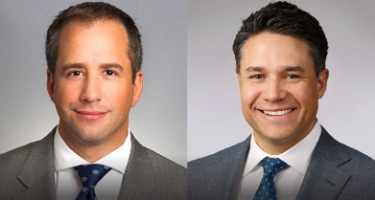Jaimie Lickers and Maxime Faille, attorneys specializing in Aboriginal Law at Gowling WLG in Canada, discuss the changing national attitude to Indigenous people’s history across the country and their firm’s significant cases in 2017 and 2018. The pair discusses their 2019 “Law Firm of the Year” award with Best Lawyers CEO Phillip Greer in the interview below.
What inspired you to focus your expertise in Aboriginal law?
Jaimie Lickers: That's an interesting question because it's not something that was a foregone conclusion for me. I actually started my practice at a Bay Street law firm and did a general corporate commercial litigation practice for a number of years. And then I realized, with everything that was happening in the field of Indigenous law, and being Indigenous myself, I knew that there was a significant opportunity there to make real change for the First Nation communities in Canada. And I just couldn't fight the temptation anymore. I had to make the move over to Gowling and change my practice area.
Maxime Faille: I had a sort of a varied career, I guess, before getting into this line of work about 15 years ago. I've done all kinds of things, including medical malpractice and some competition law, but I always had fairly significant practice in public law and constitutional law. I hadn't specifically been involved in Aboriginal law. And that's something that came to me by serendipity. I was brought in on a case by our senior mentor, Brian Crane, who's one of the top Aboriginal lawyers in Canada. And just fell in love with the area and really decided that that's what I was going to focus my career on going forward. Best decision I've ever made, professionally.
What achievements are you most proud of from this past year?
Maxime Faille: One is the decision of the Supreme Court of Canada in the Chippewas of the Thames and Clyde River case. We weren’t lead counsel on the Supreme Court level, although we had, on behalf of the Chippewas of the Thames, been counsel of record at the National Energy Board level. And both Jaimie and I were counsel in the Supreme Court of Canada as interveners for the Chiefs of Ontario in that case. This was a very significant case on the issue of the duty to consult First Nations. The second major case for our team is the Tsleil-Waututh Nation decision of the Federal Court of Appeal in regard to the Trans Mountain Expansion pipeline expansion challenge. This decision has had major reverberations throughout our country. It was argued last year in the Federal Court of Appeal, in a two-week appellate hearing, which is the longest appeals hearing in the history of our Federal Court of Appeal, involving multiple parties and multiple issues. Very, very complex. It was a herculean task and the result of which was of great significance. So that was a major accomplishment for the members of our team.
Jaimie Lickers: I was honored this year to represent a nonprofit corporation that was formed to speak out about some injustices that were perpetrated against a number of individuals in Canada that were applying for membership in a brand new First Nation, which was established on the East Coast, in Newfoundland,. As you can imagine it's a pretty rare situation, anymore, for new First Nations to be created in Canada. And so, it's quite a complex process, whereby the criteria for membership in that Nation has to be somehow established and then applied to the individuals who apply for membership and Indian status.
The way in which the process was handled, largely by the federal government, resulted in a number of injustices and unfairness to the applicants, in our view. We were retained on behalf of the nonprofit corporation that was representing the applicants to the band who felt that they had been wronged throughout this process. And we litigated that in the Federal Court, and to a large extent the Federal Court agreed with us that there was unjustifiable unfairness in the way that the applications were processed and so we were successful in that case.
Are there any important policy changes that are affecting this practice locally or globally?
Maxime Faille: The Federal Government has undergone a fundamental rethinking of its approach to these issues. Now, I would say this process is not fully complete. We saw that in this recent decision that I mentioned, the Trans Mountain case, in which Canada received a fairly strong rebuke by the Federal Court of Appeal in terms of its handling of indigenous consultation. So, it's a reflection of the fact that there's still a ways to go and that there's still lessons to be learned.
But, in fairness, and I've certainly noticed it particularly at the negotiations table, and to some degree in litigation as well, the Federal Government has done a fundamental rethink of its policies relating to its relationship with indigenous people, has taken a much more proactive, much more favorable and friendly approach. And, one of the, I think, important policy decisions in that regard, and there are many, has in fact been to eschew some of the existing policies that had been on the books for many years, and that have the effect of really, severely constraining government's ability to negotiate with indigenous nations on a number of key areas.
Are there any trends you guys are witnessing in Aboriginal law, maybe in the last year, and what trends do you, or changes do you see happening over the course of the next few years?
Maxime Faille: I think there are a number of trends that have really started to emerge, I would say in the last five years, in which this area of law has really exploded because of the rising tide of all the various court decisions, creating a much greater consciousness on the part of the Canadian public. Generally, there's been a sea change in public attitude toward our history and our relationship with Indigenous peoples in Canada. And that is a result of a number of factors not least being the Truth and Reconciliation Commission's report that dealt with the tragedy of the residential school experience in Canada. I think you could probably liken to the awakening that occurred in the 1960's in the United States around issues of civil rights. We are undergoing that kind of transformation when it comes to a sudden understanding on the part of the broader Canadian population that we have this fairly ugly history that we need to deal with and address in a meaningful way.































